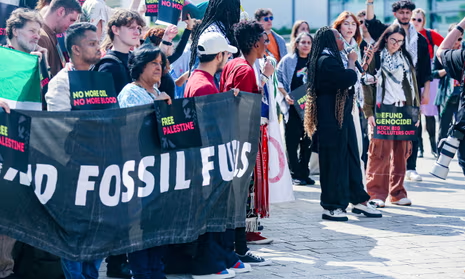The United Nations has conceded that finding the finance needed to stave off the worst impacts of the climate crisis will be “a very steep mountain to climb”, as two vital international conferences failed to produce the progress needed to generate funds for poor countries.
There is still no agreement on how to bridge the near-trillion dollar gap between what developing countries say is needed and the roughly $100bn a year of climate finance that flows today from public sources in the rich world to stricken developing nations, with less than five months to go before the Cop29 UN climate summit in Azerbaijan in November.
Latest reports suggest that rich countries have so far given little indication that they are rising to the challenge. The G7 summit of heads of state of the world’s richest countries, in Italy last weekend, skirted the topic of climate finance with warm words on the “importance of fiscal space and mobilising resources from all sources for increased climate and development action, particularly for low-income and vulnerable countries”.
Campaigners said the group’s promises to “work on a coordinated approach” were too vague and had little substance. Harjeet Singh, the global engagement director for the Fossil Fuel Non-Proliferation Treaty Initiative, said: “The G7 nations have once again failed to fulfil their obligations in responding to the climate crisis. Wealthy countries bear significant responsibility to developing countries for the harm they’ve inflicted through years of extractive exploitation of resources and the consequent impacts caused by climate change. They owe trillions of dollars annually to hundreds of millions of people suffering and dying from climate impacts.”
Read also: Report: Deadly heat in Mexico, US made 35 times more likely by global heating
Sima Kammourieh, the programme lead at the thinktank E3G, said: “The G7 leaders failed to present the full-fledged, structured and specific economic and financial action plan that is needed for global climate safety. At this juncture, more is needed than menus of options or high-level frameworks.”
Last Thursday, an exhausting fortnight-long meeting of ministers and officials in Bonn, the UN’s climate headquarters, ended with similarly scant concrete results. Mohamed Adow, the director of the Power Shift Africa thinktank, warned that without finance, developing countries could not hope to reduce their emissions and cope with the impact of the climate crisis. He said: “Developing countries are expected to slay the climate dragon with invisible swords, having got zero assurances on the long term finance they need.”
Simon Stiell, the UN climate chief, warned: “We can’t keep pushing this year’s issues off into the next year. The costs of the climate crisis – for every nation’s people and economy – are only getting worse.”
The failures have bruised already fragile hopes of reaching a global settlement that would provide the funds needed for poor countries to cut their greenhouse gas emissions and cope with the effects of worsening extreme weather.
At Azerbaijan this November, at this year’s conference of the parties (Cop) summit under the UN framework convention on climate change, governments are supposed to agree a new framework for climate finance and a “new collective quantified goal” that would set out how much rich countries should provide to the poorest, and how the money should be collected and spent.
Story was adapted from the Guardian.
